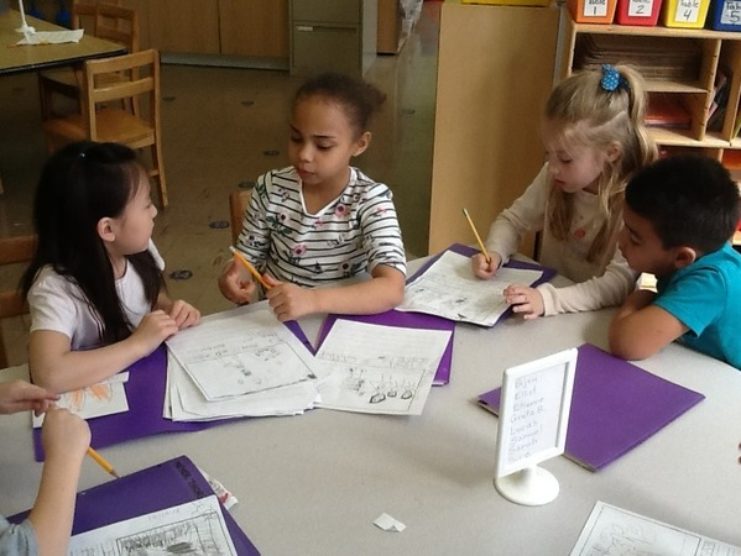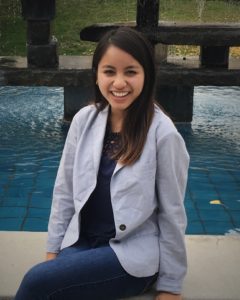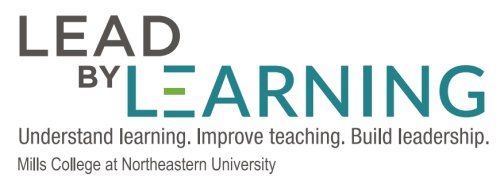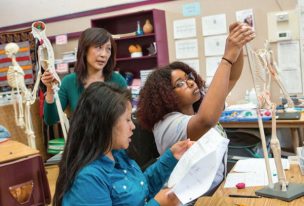
Getting Kindergarten Writers to Tell Me More
At the beginning of the year, my TK/Kinder classroom was often very quiet. The majority of my students were English Learners, still at the early stages of learning to communicate in English. While playing and talking independently came naturally to them, most of my students needed supportive scaffolding to help them communicate in academic settings. I decided to focus my inquiry on creating meaningful writing partnerships as a means of helping my young students develop academic language. I wanted them to have opportunities to reflect on each other’s writing and to develop their identities as authors. I wanted to learn to improve my teaching practice in Writers Workshop; and I wanted my students to understand stories as a natural way to express their creativity and identify with each other.
“Tell Me More”
I began the year collecting writing samples, but I soon realized that looking at students’ writing alone wasn’t telling me everything I wanted to know about what they were learning as writers. I was inspired by my Lead by Learning colleagues to start collecting video data of my students working together in their writing partnerships. In the videos, the students work in pairs, using a checklist to look at their writing. Each student helps the other check that they included the story elements we were practicing, including drawing a picture, writing a sentence, putting spaces between words, starting with a capital letter, and being able to show (on paper) and explain (orally) WHO was in the story, WHAT happened, and WHERE the story took place.
At one of our Lead by Learning inquiry sessions, I was the “public learner” and shared some of my most recent data with my colleagues. In one video, two students sit with me and practice using the checklist. One student, Alina, just points in response, without using any words to explain to her partner the elements of her story. In the video I prompt Alina, “Can you tell me more?” and my prompt helps her and her partner dive into more conversation about her writing. My colleagues noticed the shift in my students’ partner talk after I prompted Alina to “Tell me more.” They helped me realize that I could encourage my students to prompt each other in this way. This simple tactic would encourage more natural conversation and would get students to think more deeply about their writing. The checklist would become a jumping off point to connect with each other in real time about their stories.
Progress…and More Questions
What I am noticing as a result of my inquiry is that students like Alina are becoming better able to think creatively on their own as storytellers. They are better able to use academic language about the elements of stories naturally and independently, and they hold each other accountable by using the checklist, which now includes the critical prompt to “Tell me more.” One of the biggest indicators of success for me is that the thinking and language skills they developed through their writing partnerships have transcended to interactive read-alouds. Students are now able to explain WHO, WHAT, and WHERE about stories that they hear, not just stories they have created themselves.
As I conclude this inquiry cycle, my original question leads to new questions. I am now wondering, How can I support students to have genuine conversations on their own that are not so structured or prompted? I feel I need to better understand what are realistic expectations for TK/K authors in the making when it comes to both writing and talking about their writing. I continue to wonder, how do I support my students to talk to each other about their writing in meaningful ways?
 Carmina Portea is a Filipina American educator from southern California passionate about social-emotional learning and early childhood education. She received her B.A. from Chapman University and her M.A. in Urban Education from Loyola Marymount University. Since then, she has been involved in the Oakland Children’s Initiative Campaign, Lead by Learning, and was a panelist at the Teach For America AANHPI Summit of Color. She is currently a Fulbright scholar in Spain.
Carmina Portea is a Filipina American educator from southern California passionate about social-emotional learning and early childhood education. She received her B.A. from Chapman University and her M.A. in Urban Education from Loyola Marymount University. Since then, she has been involved in the Oakland Children’s Initiative Campaign, Lead by Learning, and was a panelist at the Teach For America AANHPI Summit of Color. She is currently a Fulbright scholar in Spain.

